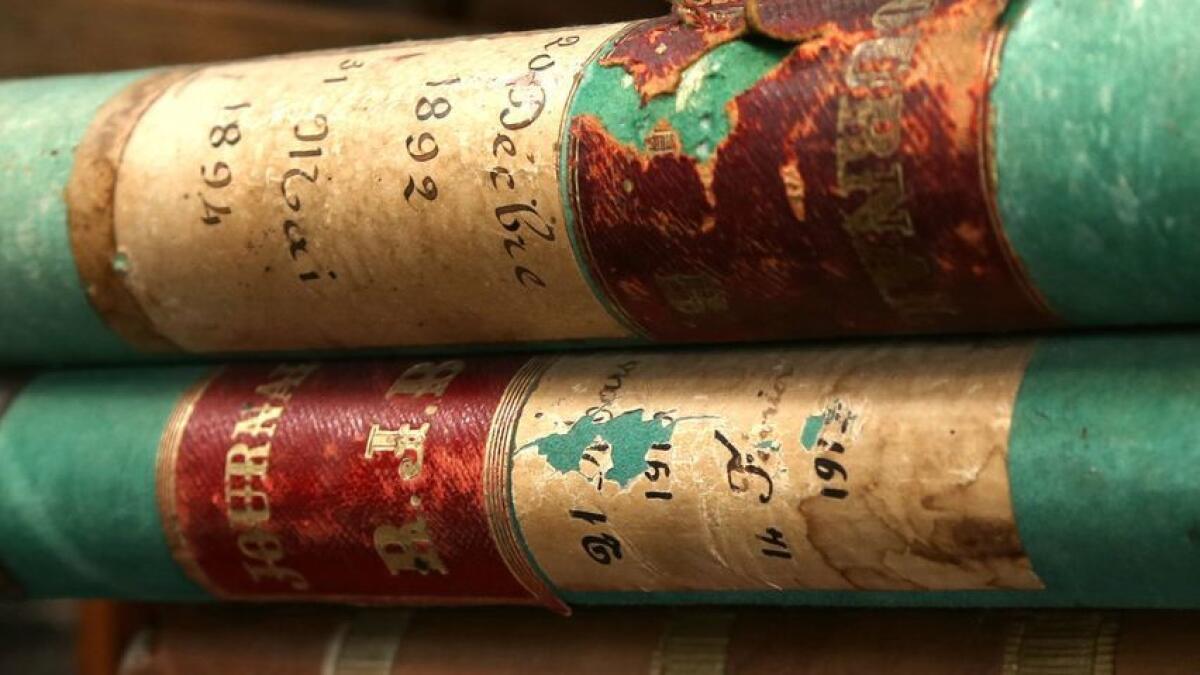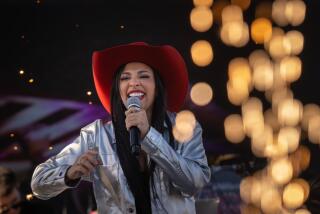Christopher Columbus’ son created a huge library. The book unlocking its secrets has been found

- Share via
A book detailing the legendary library of Hernando Colón, the younger son of explorer Christopher Columbus, has been discovered in Denmark, NPR reports.
The “Libro de los Epítomes,” which served as a guide to Colón’s massive collection of books, had been missing since shortly after the bibliographer’s death in 1539.
Edward Wilson-Lee, who has written a book about Colón and his library, said the 2,000-page book is “an absolutely gorgeous thing.”
“The most exciting thing about this is that many of the books that it summarizes will be books that are lost in every other form,” Wilson-Lee told NPR. “Hernando was, in many ways, a kind of crazed visionary — like his father. Whilst most other book collectors of the day were collecting dusty old manuscripts of Plato and Cicero, Hernando was one of the few people to see the real potential of print.”
Colón, often referred to as Ferdinand Columbus, was among the sailors on his father’s fourth expedition to the New World, which ended with the crew stranded in Jamaica after a shipwreck.
Upon his return to Europe, he began collecting books, eventually amassing a library of at least 15,000 volumes in several languages.
“That maybe doesn’t sound that big nowadays, but it was at least an order of magnitude bigger than the biggest libraries of the day,” Wilson-Lee told the Guardian. “Most other people, even very bookish people, would have had a couple of hundred books. Other big collections of the day were around 3,000. This was at least five times as big.”
“He was trying to prove himself his father’s legitimate spiritual heir even if he wasn’t his father’s legitimate son by building a universal library which had every book in the world in it,” Wilson-Lee said in an interview with CBC Radio. “He personally went around and bought books on these extraordinary book shopping sprees where he was purchasing thousands of titles at a time.”
Only a fraction of Colón’s library is still extant. The books are housed at Cathedral of St. Mary of the See in Seville, Spain, where Colón and his father are buried.
The “Libro de los Epítomes” was commissioned by Colón as a guide to his book collection.
“One of the things that Hernando realized was that collecting every book in the world — and this was during the early age of print when the number of books was accelerating rapidly — collecting all these books wouldn’t really be very useful if you didn’t have some way to organize and distill them all,” Wilson-Lee said. “So he paid an army of readers to essentially read every book in the library and distill it down to a short summary so that this enormous library could be at the disposal of a single person who would be able to control it.”
Historian Guy Lazure agreed with Wilson-Lee’s assessment, the National Post reports.
“It’s great to have it all, but it’s pointless if you can’t find your way around it,” Lazure said. “That’s one of the great things about his thoroughness and how meticulous he was. He annotated all his books the same way.”
The book turned up in a collection at a university in Copenhagen among several works of Icelandic literature.
“This is really a story of a book that was lost in the library, almost, because it was put on the wrong shelf,” Wilson-Lee told NPR.
He said the book will at some point be translated from Latin and digitized, although it likely won’t be available soon.
“It’ll probably take five or seven years to actually get all of that done,” Wilson-Lee said. “It’ll eventually be made available to the public and contribute further to this fantastically exciting story.”
More to Read
Sign up for our Book Club newsletter
Get the latest news, events and more from the Los Angeles Times Book Club, and help us get L.A. reading and talking.
You may occasionally receive promotional content from the Los Angeles Times.









